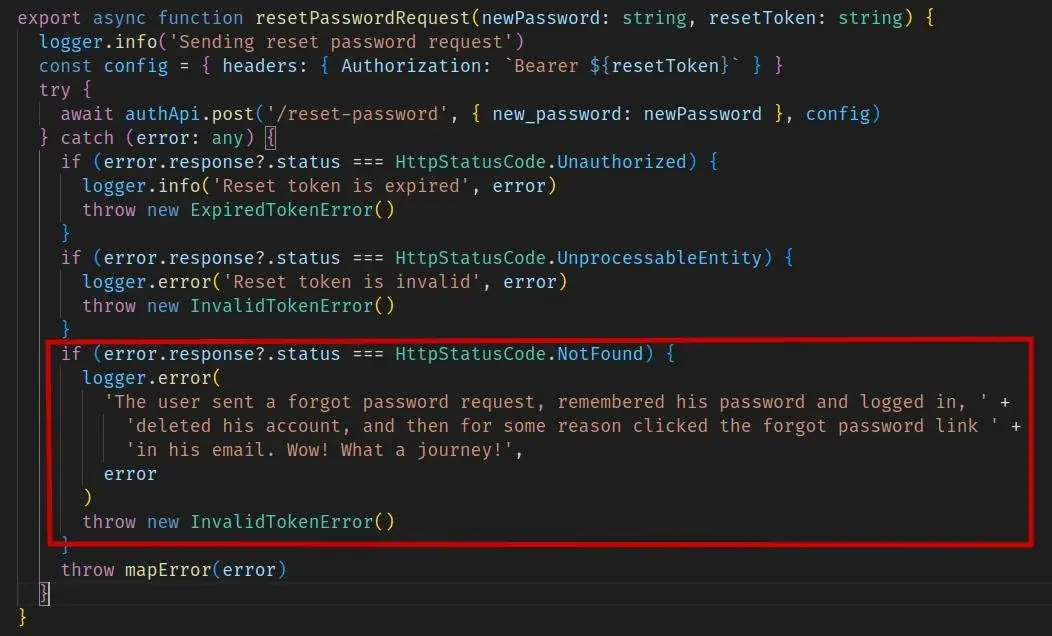this post was submitted on 12 Aug 2024
1022 points (99.5% liked)
Programmer Humor
23147 readers
1273 users here now
Welcome to Programmer Humor!
This is a place where you can post jokes, memes, humor, etc. related to programming!
For sharing awful code theres also Programming Horror.
Rules
- Keep content in english
- No advertisements
- Posts must be related to programming or programmer topics
founded 2 years ago
MODERATORS
you are viewing a single comment's thread
view the rest of the comments
view the rest of the comments

It's actually much more technical than theoretical. When you delete an account on a website, that is being kept for a little while longer, it merely has field in the database that gets updated. (often with a removal date as well for the automatic removal after x amount of days). This field needs to be checked everywhere the account is used. And account recovery is mostly a part where this is forgotten, or possibly not even wanted.
And to claim this as fact, I just realized that the website I work on allows recovering of banned accounts. (Removed accounts are completely removed though because we don't need to retain any data).
Keeping the records for a little while longer is actually implied to be known. It's in their privacy policy, and is legal.
Whether or not services should make this easier to know exactly what is happening I definitely agree. Personally I think post history without user identifiable data should also be removed, but this is even less common practice (and is why tools exist to delete all your reddit posts for example).
Usually something like this would be enforced once in a centralized location (in the data layer / domain model), rather than at every call site.
This gets tricky because in many jurisdictions, you need to ensure that you don't just delete the user, but also any data associated with the user (data they created, data collected about them, data provided by third-parties, etc). The fan-out logic can get pretty complex :)
True. Although not every endpoint is the same, nor is every website or service.
GDPR specifically mentions user identifiable data. I don't know about others.